Raising Kids in the Age of Climate Change
Kids listen to what you do, more than what you say
Talking about climate change is more of a journey that you’re taking together, an ongoing dialogue as your family gradually brings practices and civic engagement in alignment with your evolving values and awareness. This page is a work in progress. Please contact us with additional helpful resources, which are flooding the web as we’re all searching for answers to the REALLY BIG QUESTION:
“How do we raise resilient children capable of hope and agency in a time when the outcome is far from certain, and all systems need to be rapidly transformed?”
“Hope is not a lottery ticket you can sit on the sofa and clutch, feeling lucky. It is an axe you break down doors with in an emergency. Hope should shove you out the door, because it will take everything you have to steer the future away from endless war, from the annihilation of the earth's treasures and the grinding down of the poor and marginal . . . To hope is to give yourself to the future - and that commitment to the future is what makes the present inhabitable.”
― Rebecca Solnit, Hope in the Dark
Respect Developmental Stages
Children learn from direct experience in ever-expanding circles: self, family, friends, community, bioregion, country, and planet. Following this natural progression, caregivers can meet a child right where they are and nurture a sense of curiosity about connections in their growing world. As Dr. Thomas Doherty describes in our Sept. 2020 webinar, one of parents’ main roles is helping a child establish their “environmental identity,” or a sense of self in relation to nature and other species. For young children, this means fostering emotional connection with places, animals, and plants and making sure kids have ample time to explore, create, and play in natural settings so they feel competent and develop values of care and stewardship for shared outdoor places. The fun part is that you can grow your own environmental identity alongside a child by helping out in a school garden regularly, visiting nature parks, or even observing birds in a favorite street tree though the seasons.
Communicate Values & Safety
As children reach ages 7+, caregivers can help reinforce values and awareness that we are part of nature and have a role to play in looking out for the health of all living beings. We can explain social and environmental justice issues when kids see them first-hand or hear about them in the news. Mary DeMocker’s July 2020 webinar can help you understand these intense connections and discover ways to help raise awareness in partnership with youth.
Personal education is the first step toward a better future for parents & kids alike. Here are some resources designed to explain climate change to children of all ages.
Most important of all, caregivers can assure children that, even if they don’t have all the answers, they will be right by their side, keeping them safe.
Model a Path Forward
Knowing about a problem without taking action leads to internal anxiety and dread for both kids and grown-ups. A healthy step when sharing information about climate change, is to also point to all ways you’re teaming up with others to create a healthy future. Offer a menu of other steps your family could take and ask kids what ways your family could be part of the solution.
Electrify your home & ditch “natural” gas
Walk, roll, or bike for errands and short trips
Eat more plants
Protect forests & existing trees
Call a public official about an important climate issue, and follow up!
Help elect pro-climate legislators
(See resource pages for more ideas.)
Resources
See Change Institute’s Climate Change and Youth Mental Health webinar(March 2022)
Yale Climate Connections: How to talk to kids about climate change (Aug. 2020)
NRDC’s Your guide to talking to kids of all ages about climate change (Dec. 2019)
NPR: How to talk to kids about climate change (Oct. 2019)
Grist: Here’s how to talk with your kids about climate anxiety (Feb. 2021)
Sustaining All Life promotes peer-peer listening exchanges among parent and youth climate activists so everyone has the healthy emotional support they need to keep going. Marya Axner & Tresa Elguera wrote a guide for whole-family climate activism that includes co-listening (interview min. 3:15).



